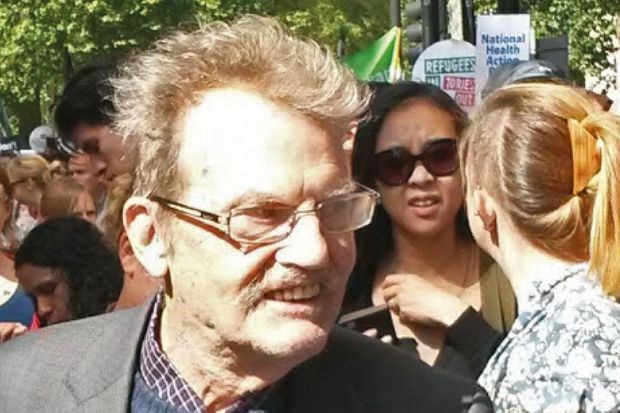Son of Nobel laureate and radical historian who forged his own path as a mathematician and activist remembered

A topologist who devoted much of his energy to political causes has died.
Luke Hodgkin was born in Norfolk in 1938, the son of Dorothy Hodgkin – only the third woman to receive a Nobel Prize in Chemistry – and the pioneering Marxist historian of Africa Thomas Hodgkin. Both were committed socialists and internationalists, and he was taken, for example, at the age of 17 to the Congress of Black Writers and Artists in Paris, where the speakers included major figures in the movement for decolonisation such as Frantz Fanon and Aimé Césaire.
After securing a scholarship to Eton College, which he hated, Dr Hodgkin studied mathematics at Balliol College, Oxford and went on to a doctorate in algebraic topology at St John’s College, Oxford (1964). He taught at the University of Algiers (1964-65) shortly after the country gained independence from France, and then at the new University of Warwick (1965-70).
In 1970, Dr Hodgkin joined the department of mathematics at King’s College London for the best part of five decades, initially as senior lecturer and from 1971 as reader, until he eventually retired in 2017. His main research interests were in topology and applications of geometry to physics. Yet he was anything but a narrow specialist. His website ranged widely across science, art, poetry, music and even “mathematical rap songs”. He produced a celebrated overview titled A History of Mathematics: From Mesopotamia to Modernity (2005) and lectured to a broad public at Gresham College on “Money and Mathematics” (2011). He also had plans for a book called Mathematics, Money, Drugs and War designed to “demonstrate how mathematics, with its claim to exact results, has become a central instrument of control” used, for example, not only to design drones for military purposes but to “prove that their workings are effective – and in particular to deny the existence of civilian casualties”.
Although this book was never completed, Dr Hodgkin found many other outlets for his political convictions, notably a commitment to refugee and Palestinian rights. He studied for a part-time master’s in human rights at Birkbeck, University of London (2009-11), volunteered at both the An-Najah National University in Nablus and legal advice centres in London, and made several visits to the “jungle” camp in Calais to offer support. He also worked with the non-governmental organisation Phone Credit for Refugees to help people stuck in camps in Greece and Lebanon.
Dr Hodgkin died of cancer on 6 October and is survived by his wife, Jean Radford, and their two children, three children from an earlier marriage, seven grandchildren and one great-grandchild.
